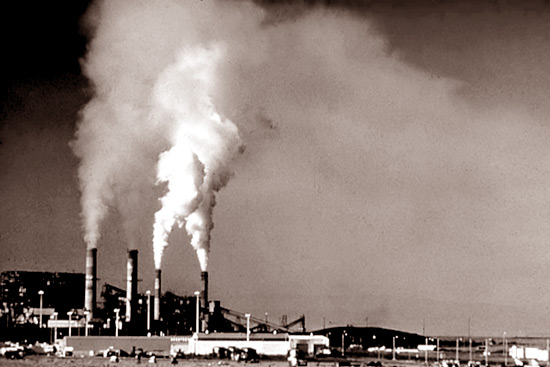Air pollution and environment protection
Vehicle emission as the biggest agent:
By Indeewara Thilakarathne
[email protected]
The quality of life is not singularly determined by the impressive
infrastructure such as super highways with flyovers, efficient transport
service and allied facilities such as hospitals, schools, hotels and
uninterrupted supply of electricity.
 Though the infrastructure may be an essential part of an increasingly
developing metropolitan of Colombo, pollutant free air and clear heaven
which is not disturbed by cloud of smokes or dusts, would not only make
the city a pleasanter environment to live in but also a healthier one
than it is today. Though the infrastructure may be an essential part of an increasingly
developing metropolitan of Colombo, pollutant free air and clear heaven
which is not disturbed by cloud of smokes or dusts, would not only make
the city a pleasanter environment to live in but also a healthier one
than it is today.
Among the many firsts, Colombo has also earned the first place of
being the most polluted city in Sri Lanka as far as the air pollution is
concerned.
Compared with the World Health Organisation Standards, Colombo’s
annual air quality is far more above than the WHO stipulated level of
pollution and the twenty four hour mean air quality is also higher than
what is recommended safe by WHO (see the box 1).
Despite its relatively small population compared with major cities of
the world, the level of air pollution in the city of Colombo is
alarmingly high.
The city of Kandy is the second air polluted city though it is
seemingly free of air pollution. Although many other factors such as
open burning of refuse, solid waste and fossil-fuel powered power plants
contribute substantially to the increasing air pollution in the city of
Colombo, it is the vehicular emission which has become the major agent
of air pollution in the city.
The principle air pollutants in Sri Lanka have been identified as
Sulfur Dioxide, Particulate matter (PM 10, PM 2.5), NOx, Polyaromatic
Hydrocarbons, CO Ozone and Lead. Vehicular emission has been the main
source of Carbon Monoxide in urban areas.
Burning of fossil fuel in either by vehicles or by generating power
will produce sulfur dioxide though sulfur dioxide is also produced by
volcanic eruption.
Apart from the individual vehicles that transport passengers, a large
number of heavy vehicles such as trucks and container- loaded long
vehicles have also contributed to the present level of air pollution in
the city of Colombo which is estimated to be three times higher than the
accepted level of air pollution according to WHO standards.
Policy initiatives to arrest the trend
The upward trend in air pollution caused by vehicle emission can be
arrested by the implementation of policy initiatives. Policy initiatives
towards that end have a positive impact on environment and on
individuals who are constantly exposed to vehicle emission.
The Government’s policy decision to phase out lead in petroleum
production has caused tremendous impact on the health of born babies and
on the health of those who have been exposed to vehicle emission for a
longer time of the day due to official obligations.
A study carried out on the lead level in the blood of traffic police
personnel deployed at various point in the city showed a remarkable
decrease in blood lead following the ban of lead in petroleum products.
The figure of blood lead in the new born was reduced from 6 per cent
before the total ban to zero after the ban. Ban on leaded Gasoline would
have significantly reduced negative health effects caused by blood lead.
It is an established fact that lead causes many health issues such as
mental and growth retardation problems among children, hypertension
related deaths and even cancer.
Some of the health effects of air pollution include health issues
regarding respiratory system, immune system allergies, Central Nervous
System, Cardiovascular System, Carcinogenic Effects Skin and on Mucosal
Tissues Skin and on Mucosal Tissues and Sensory Effects.
In addition air pollution could cause death, intensifying disease,
worsening of pre-existing disease, worsening of symptoms and worsening
of physiological parameters such as lung function.
Although the nation could not immediately totally stop the vehicular
emission in the immediate future, tied regulations such as Vehicle
Emission Test (VET) and other emission regulations would, in the long
run, improve the air quality in Colombo and other cities until
alternative energies would dominate the energy economy in Sri Lanka.
(The Article is based on an awareness programme on Air Pollution)
|
